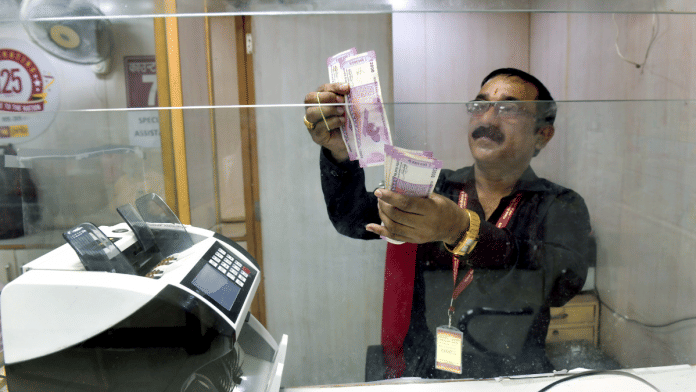New Delhi: The central government, through different avenues of communication, has issued a few clarifications saying that the Rs 2,000 currency note will remain legal tender even after 30 September, and that consumers do not need to provide any additional documentation or forms to exchange their notes at the banks.
The Reserve Bank of India (RBI) Friday announced that the Rs 2,000 note — introduced in the wake of demonetisation — would be discontinued.
It ordered banks to stop releasing the high-denomination note into circulation and urged people to either exchange or deposit their notes at banks and RBI offices. The deadline for exchange and deposits at banks was set as 30 September, 2023.
The RBI had, neither in its announcement nor in the accompanying FAQ document, specified what would happen to the Rs 2,000 notes after 30 September.
On Sunday, the Twitter handle of MyGov, the government’s citizen engagement platform, clarified the position.
“Yes! The ₹2000 notes will continue to be legal tender even after September 30, 2023. Your currency remains valid, so keep calm and let’s bust the panic,” the MyGov handle tweeted.
The government-owned State Bank of India — the country’s largest lender — Saturday wrote to the chief general managers of all its offices saying that “the facility of exchange of Rs 2,000 denomination bank notes to all members of the public upto a limit of Rs 20,000 at a time will be allowed without obtaining any requisition slip”.
“Further, no identity proof is required to be submitted by the tenderer at the time of exchange,” the instructions, reviewed by ThePrint, said.
Officials in the Ministry of Finance confirmed that these procedures would be followed in all other banks as well.
The MyGov handle also clarified that any bank, regardless of whether a person has an account with them or not, can exchange the Rs 2,000 notes.
(Edited by Richa Mishra)
Also Read: The life & times of Rs 2,000 currency note — a tale of confusion, contradictions by govt






